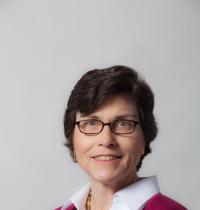The schedule for academic year 2024-25 is coming soon!
Curriculum topics vary slightly from year to year. Each session is led by experienced faculty members representing the humanities, natural sciences, and social sciences.
Previous sessions included:
Getting Acquainted; Program Goals for the Year
Over lunch you will get to know other new junior faculty members in the School of Arts and Sciences (SAS). Be prepared to share a bit about your background, your area of expertise and the nature of your research. What courses will you teach? We will reflect on choosing a career in academia and being a leader in a university setting, and outline program goals for the year.
Joining the Penn Community: Settling into Your Department, SAS and Penn
Academic institutions can have unique cultures and logics. Sometimes, these things are so taken for granted that even senior faculty find themselves learning additional “rules of the game.” This session will build on the SAS new faculty orientation and offer many small but crucial pieces of information. Topics include the structural organization of departments and SAS and how to find your way in faculty meetings, colloquia, and other faculty events.
Tips on Time Management in Your New Role
One of the pleasures of holding an academic position is that it comes with a diversity of roles and responsibilities. A variety of responsibilities can also mean competing demands for our time. How should we set priorities? How should we juggle requests from students versus other goals related to research and writing? This session will offer concrete advice for time management and provide a set of principles to guide decision making.
Receiving Mentorship in the Context of Your Discipline
Junior faculty receive mentoring in various formats and settings, from casual hallway discussions to meetings with an assigned mentoring committee. Mentoring can range from such subjects as putting a course together to deciding whether to accept a publishing or speaking invitation. This session will discuss the importance of identifying one or more helpful mentors and assist you in developing strategies to get the most out of mentoring relationships.
A Whole Person: Being a Professor with Competing Obligations
Although research, teaching, and service are integral parts of an academic career, they are not the only things professors do. Spending time with family and taking adequate time for social activities are also important. Faculty members might face added obligations as they help their partners get settled in a new location, raise young children, or attend to parents’ needs. Join us for an informal conversation about finding a successful balance between an academic career and other important life components.
Learning to Teach and Make the Most of Teaching Evaluations
For new assistant professors, teaching can come with unexpected challenges as well as rewards. The many new tasks include figuring out how much coursework to assign, managing teaching assistants, preparing lecture series, assigning grades, and sometimes responding to disgruntled students. New faculty can find course evaluations hard to interpret or perhaps disappointing in their content. This session will discuss the rewards of teaching and provide valuable tips for how to manage teaching efficiently and how to identify useful comments within students’ teaching evaluations.
Now You are the Mentor: Developing Your Leadership Skills
Regardless of whether you are running a lab, overseeing teaching assistants, or simply advising students, you are now a leader in the workplace. In this session, experienced faculty will advise on best practices in your role as manager and mentor, regardless of discipline. How should we set and manage expectations? How should we measure and reward progress? When should we refer our mentees for additional help or oversight?
Promotion is Part of the Process: Third-Year Reviews and Tenure Reviews
Academic institutions, and even schools within Penn, may vary in the promotion review process. The purpose of this session is to explain how things work at Penn in the School of Arts and Sciences. What do Chairs, Deans, and the Personnel Committee look for in an outstanding file? Who is on the SAS Personnel Committee? How does it work? What is the timeline? We will hear from experienced members of the SAS Personnel Committee. You will learn about the kinds of letters department chairs would like to be able to write for promotion files and gain deeper insight into building a successful career at Penn.
Best Practices for Seeking Extramural Funding
Sources of extramural funding, the purpose of the funding, and the timeline for writing proposals differ among disciplines. Yet, there are some universal best practices for identifying a good match for funding and communicating the importance of one’s research. Many funding opportunities require writing a proposal that targets a broad audience. Experienced faculty, representing different disciplines, will offer their insight on the basics for funding success.

